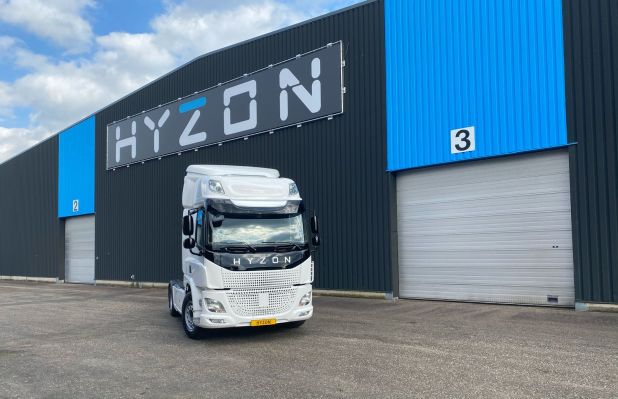Hyzon Motors has begun shipping hydrogen fuel cell trucks to customers

Hydrogen-powered sturdy truck business Hyzon Motors stated Wednesday it is ramping up operations in the wake of its merger with blank-check firm Decarbonization Plus Acquisition Corp., including delivering its very first trucks to European consumers.
While a number of Hyzon’s sales are for a small number of trucks, Knight stated he sees the buying timeline from preliminary sale to fleet conversion growing shorter– a minimum of in Europe, where there is significantly more hydrogen schedule. “Whereas, earlier I would have stated, it’s a 12-to-18 month procedure to go from getting your very first fuel cell truck and attempting it out and after that maybe getting a couple of more and determining what fleet conversion would look like over time, and after that kicking off that fleet conversion procedure– I in fact believe that’s compressing,” Knight said.
“Many consumers are getting their hands on the very first fuel cell vehicles they’ve ever seen in the next six to 12 months,” CEO Craig Knight said during the call. That is a genuine type of technology recognition procedure and the customers need to feel comfortable the automobiles work well in their use case.”
The business, which reported second-quarter profits Wednesday, said it is also preparing to begin its very first consumer trials in the United States.
The business is focused mainly on back-to-base operations instead of long-haul freight haulage, as the latter requires a more thoroughly built-out hydrogen refueling network. The U.S. consumer trial with logistics company Total Transport Services Inc. is a high-utilization (trucks can run up to 18-20 hours each day) use case, however the truck will only ever require to access the single refueling station in Wilmington, California. “It’s a good application for hydrogen, and we’re not introducing the complication of having to discover hydrogen stations across the nation,” Knight stated.
Like other transport companies that have actually gone public by means of a merger with an unique function acquisition fund, Hyzon doesn’t yet have any profits to mention. Rather, Hyzon is relying on the big injection of capital from the transaction– more than $500 million– and growing consumer orders to take it to positive money flow.
Currently, the company reported a net loss for the quarter of $9.4 million, consisting of $3.5 million in R&D expenditures. It had a negative adjusted EBITDA of $9.1 million. The company has $517 million in money on hand, enough to reach totally free money flow by 2024 without needing to sell extra equity, Hyzon CFO Mark Gordon said throughout a second-quarter earnings call.
In addition to making hydrogen fuel cell powertrains, Hyzon is likewise investing in hydrogen fuel production hubs, a crucial piece of facilities for innovation uptake. In April, the company signed an MOU for a joint venture with sustainable fuels company Raven SR for up to 100 hydrogen production hubs. Gordon validated the first two will be in the Bay Area.
He likewise stated that the company is on track to provide 85 fuel cell vehicles by the end of this year, with the business’s very first earnings following quarter. Orders and memoranda of understanding under agreement has grown to $83 million from $55 million since April, but a lot of the MOUs are non-binding. A contract with Austrian grocer MRPEIS for 70 trucks next year is one such example. Hyzon deals with a slightly uphill fight in terms of technological adoption, as numerous of their clients have never ever seen or utilized a hydrogen fuel-cell car.
In April, the business signed an MOU for a joint endeavor with renewable fuels business Raven SR for up to 100 hydrogen production hubs. He likewise stated that the company is on track to provide 85 fuel cell vehicles by the end of this year, with the company’s very first revenue coming next quarter. The company is focused primarily on back-to-base operations rather than long-haul freight haulage, as the latter needs a more extensively built-out hydrogen refueling network. The U.S. consumer trial with logistics business Total Transport Services Inc. is a high-utilization (trucks can run up to 18-20 hours per day) utilize case, but the truck will just ever require to access the single refueling station in Wilmington, California.
